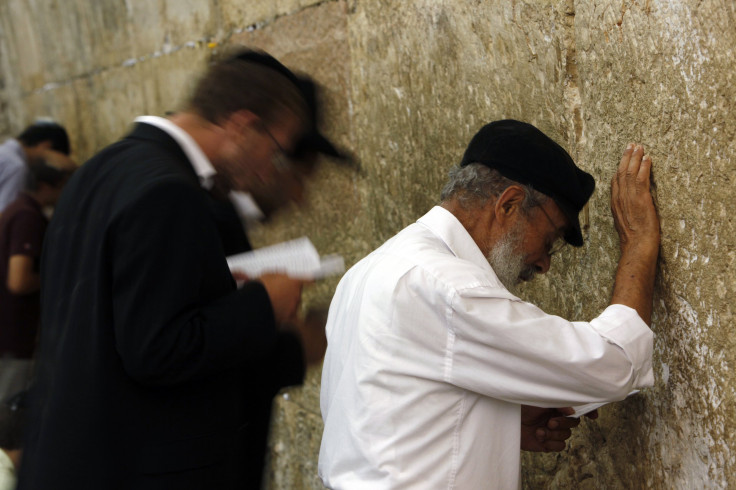Tisha B’Av 2021: Quotes To Mark Jewish Day Of Mourning
Tisha B'Av is marked on the ninth day of the Hebrew month of Av by millions of Jewish people across the world. This day is observed to remember the tragedies that have befallen them throughout history.
Tisha B'Av, which begins on the evening of July 17 and ends in the evening of July 18, is commemorated by reciting mourners’ prayers with some prohibitions on eating, drinking, bathing, wearing leather shoes, smiling, laughing or chatting idly. No food or drink is allowed during the day. Jewish people start the day with a pre-fast meal, which usually consists of a hard-boiled egg and some bread.
On the night of Tisha B’Av, the Book of Lamentations that comprises poetic chapters mourning the destruction of Jerusalem, is read. People also refrain from greeting others on the holiday.
Below are some quotes to mark the day of mourning, collected from Metro and Aish.
1. “Five misfortunes befell our fathers … on the ninth of Av. …On the ninth of Av it was decreed that our fathers should not enter the [Promised] Land, the Temple was destroyed the first and second time, Bethar was captured and the city [Jerusalem] was ploughed up,”— Mishnah Ta’anit 4:6.
2. “How then are these dates to be reconciled? On the seventh the heathens entered the Temple and ate therein and desecrated it throughout the seventh and eighth and towards dusk of the ninth they set fire to it and it continued to burn the whole of that day. … How will the Rabbis then [explain the choice of the 9th as the date]? The beginning of any misfortune [when the fire was set] is of greater moment,”— Talmud Ta’anit 29a.
3. “Jews survived all the defeats, expulsions, persecutions and pogroms, the centuries in which they were regarded as a pariah people, even the Holocaust itself, because they never gave up the faith that one day they would be free to live as Jews without fear,” — Jonathan Sacks, Member of Parliament of U.K.
4. “Should I weep in the fifth month [Av], separating myself, as I have done these so many years?” — Zechariah 7:3.
5. “I will insist the Hebrews have [contributed] more to civilize men than any other nation. If I was an atheist and believed in blind eternal fate, I should still believe that fate had ordained the Jews to be the most essential instrument for civilizing the nations," — John Adams, Second President of the United States.
6. "I do not want followers who are righteous, rather I want followers who are too busy doing good that they won’t have time to do bad," — Rabbi Menachem, Mendel of Kotzk.

© Copyright IBTimes 2025. All rights reserved.





















